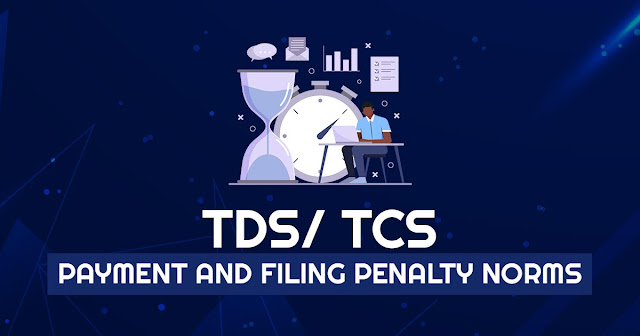The first note the person who is supposed to deduct the taxes fails to do so, then the assessee will be considered to be in default.
The second note. If the AO determines that the default was due to good and sufficient reasons, a penalty will not be imposed. Here, we included complete details of the after-effect due to non-payment and non-filing of TDS/TCS returns:
Read also: TDS Online Payment Procedure, Due dates, and Forms: Ultimate Guide
After Effect Due to Non-filing of Returns and Non-payment of TDS/ TCS
| Section | Nature of Default | Effect |
|---|---|---|
| Section 271C of IT Act | Taxes are not deducted in full or in part | The Joint Commissioner may impose a penalty equal to the amount of tax that such a person failed to deduct or pay. |
| Section 276B in The IT Act,1995 | Deduction of tax at source but failure to pay | Fined and imprisoned for a period not less than 3 months but not more than 7 years. |
| Section 276BB | Taxes collected at source that are not paid | Fine and rigorous imprisonment for a term of not less than 3 months but not more than 7 years shall be the punishment. |
| Under Section 272A(2) | Failure to issue tax deducted at source (TDS) certificates or, failure to issue declaration u/s 15H Form | That person will then default to a penalty of Rs. 500 every day but it cannot exceed the amount of Tax Deducted at Source (TDS). |
| Section 272BB Penalty | If failure to involve for TAN or a quote on relevant documents | Penalty of Rs. 10,000/- |
| Section 234E | Where a person is late, there are fees for delay in filing of TDS/ TCS statement and furnishing wrong details in TDS/TCS Statements. | If a person fails to file their TDS return then they will be considered in default, with late fees of Rs. 200 for every day But it can’t exceed the amount of tax-deductible or collectable and such fees shall be paid before delivering the statement. |
| Penalty U/S 271H | Late fees for furnishing of TDS/TCS Statements and furnishing wrong details of TDS/TCS Statements | The penalty which shall not be less than Rs. 10,000 which may extend to Rs. 1,00,000 shall also be levied in addition to the late fees under section 234E |
| For Section 201(1A) | Assessee fails to deduct the whole or any part of the tax in accordance, after then deducting fails to pay the tax. | “Shall be liable to pay simple interest- -1% per month or part of a month on the amount of such tax from the date on which such tax was deductible to the date on which such tax is deducted-1.5% for every month or part of a month on the amount of such tax from the date on which such tax was deducted to the date on which such tax is paid.” |


Comments
Post a Comment